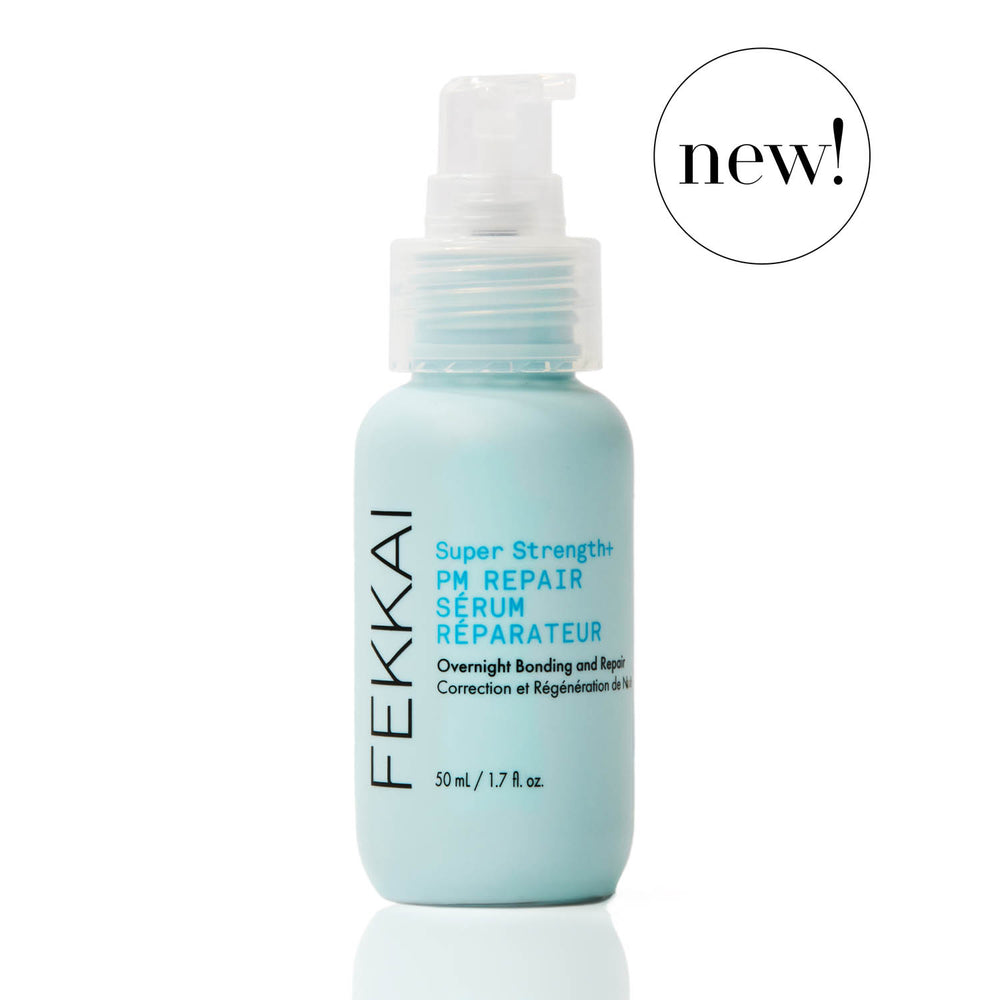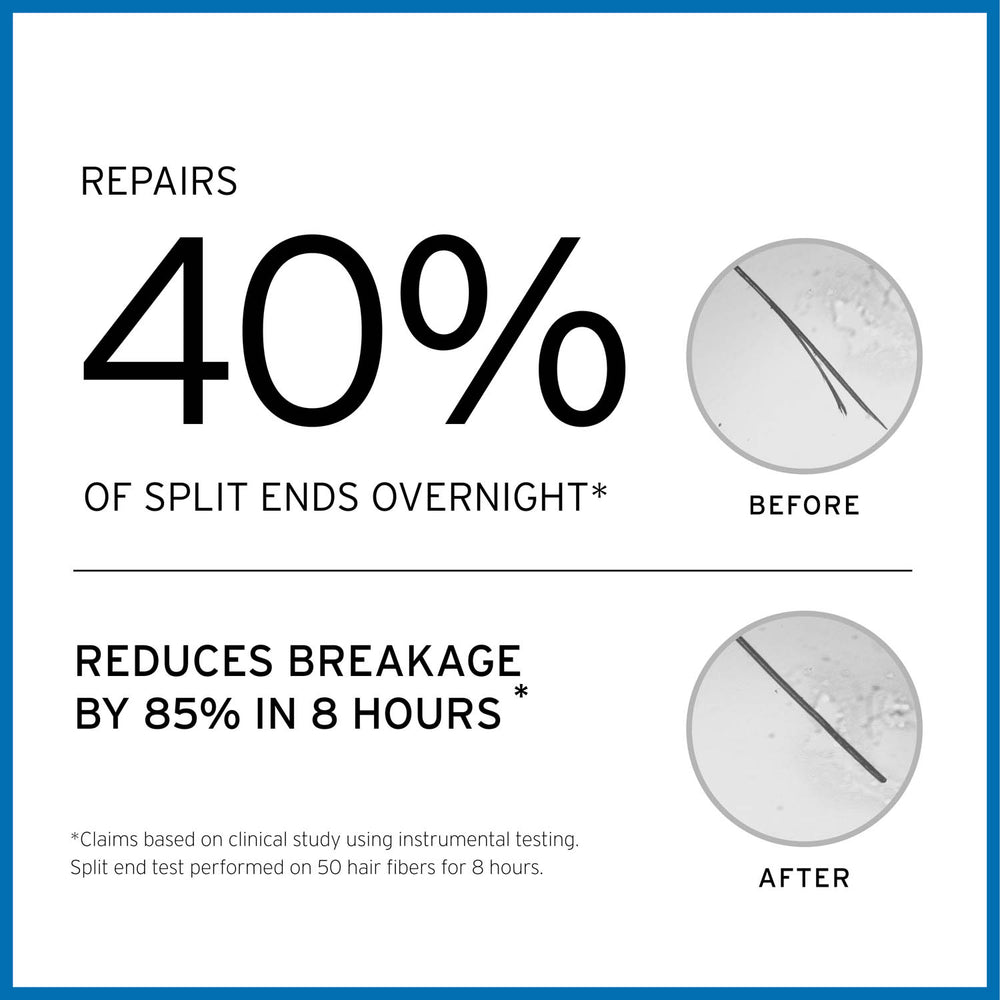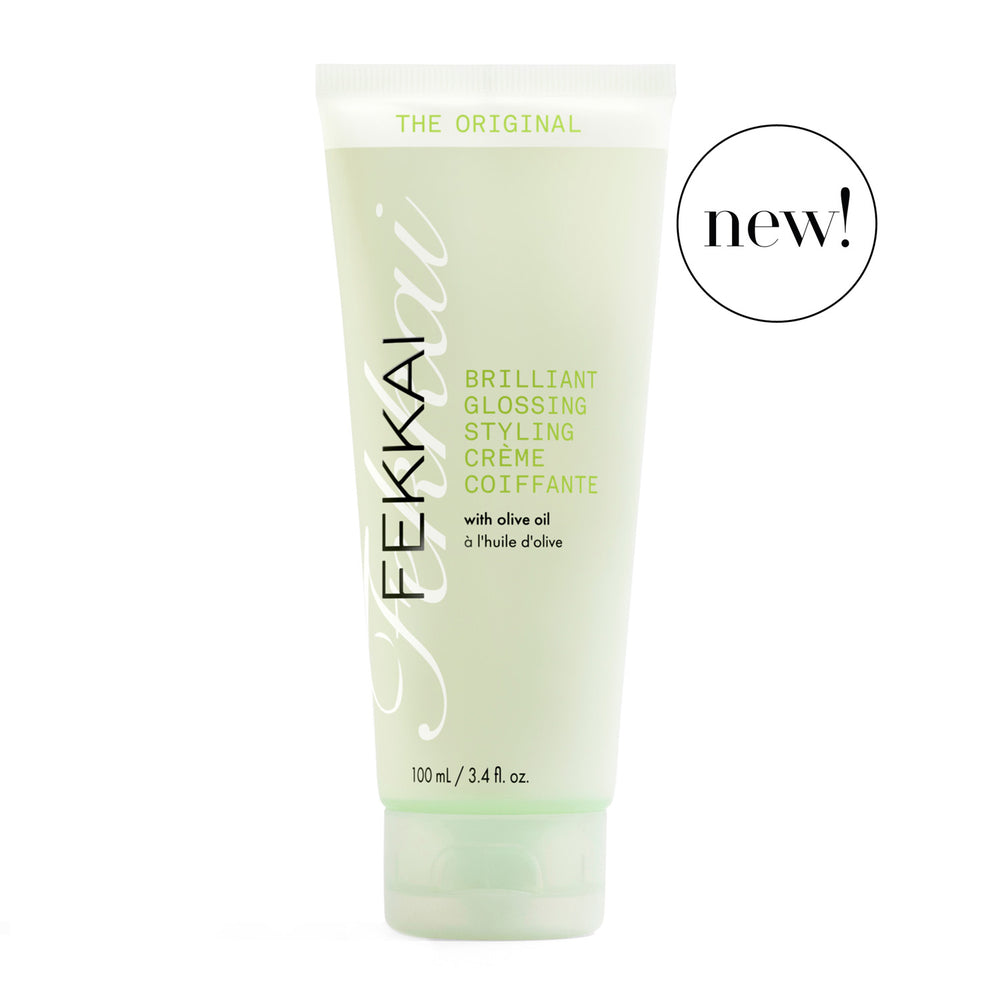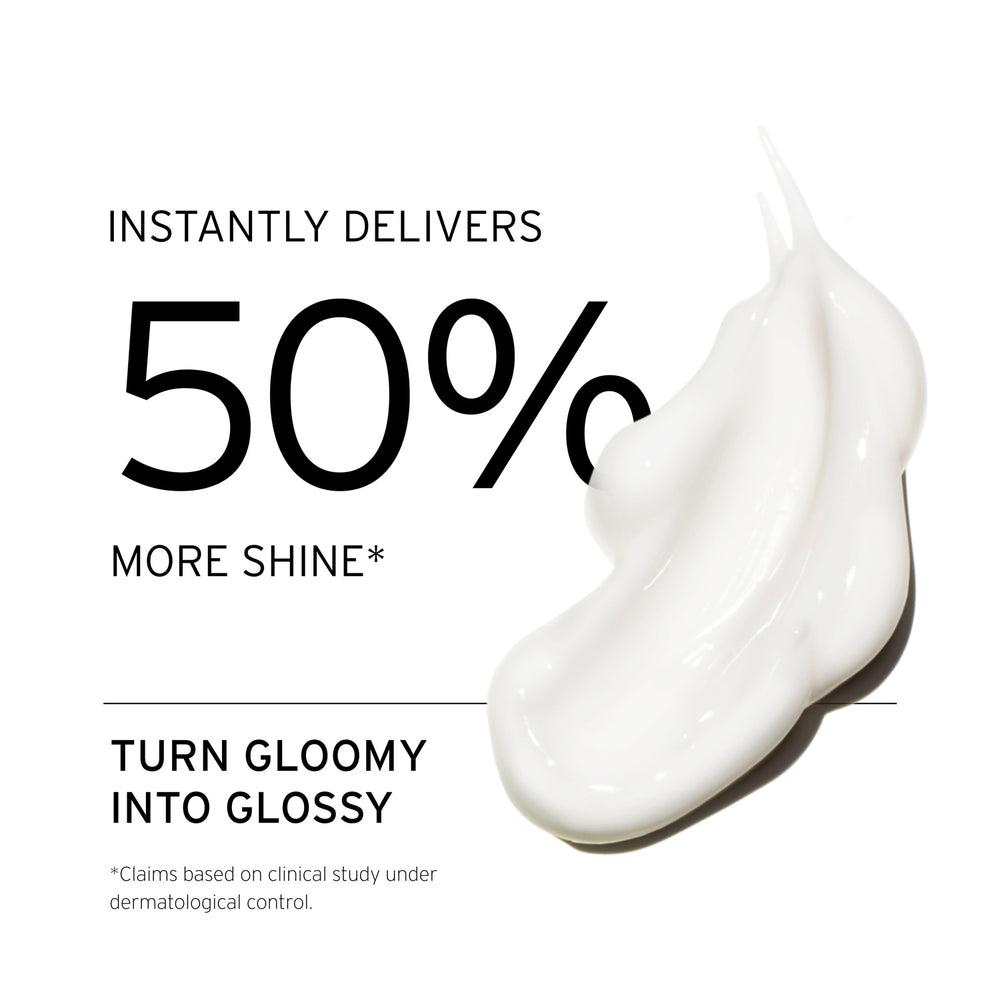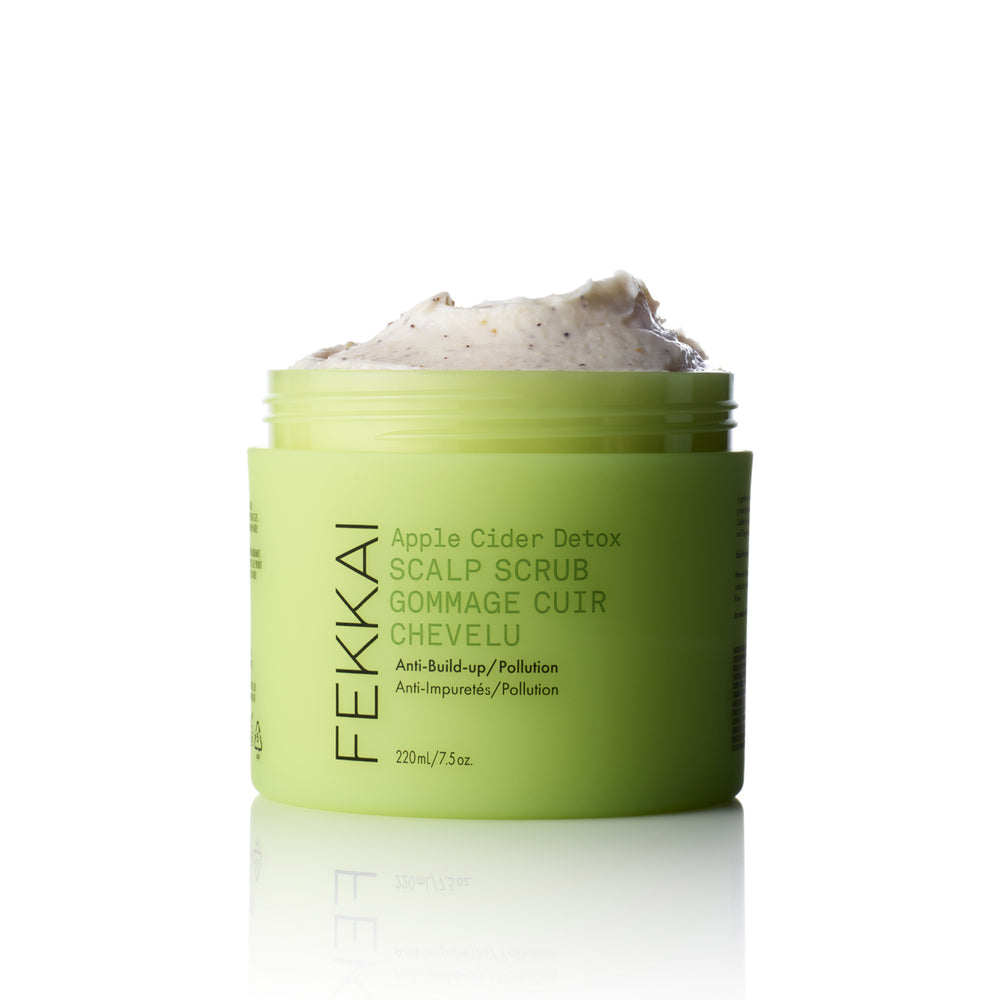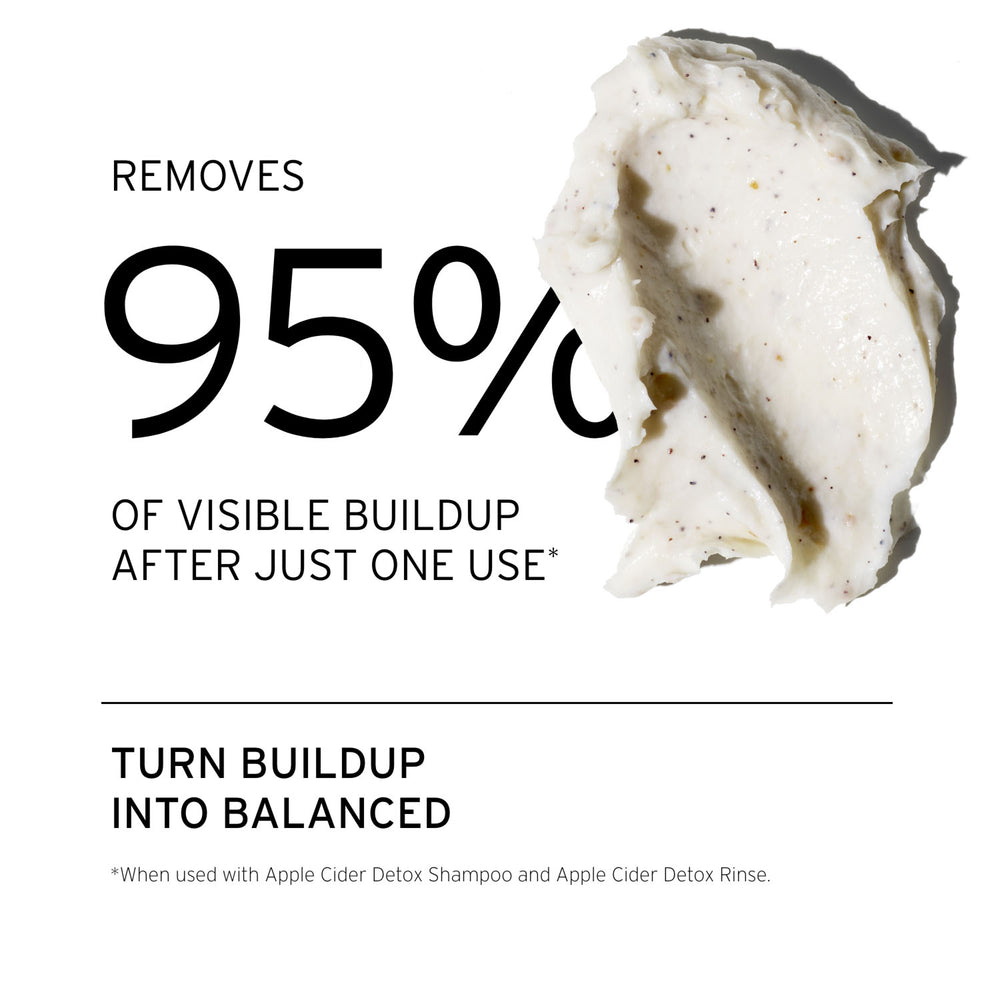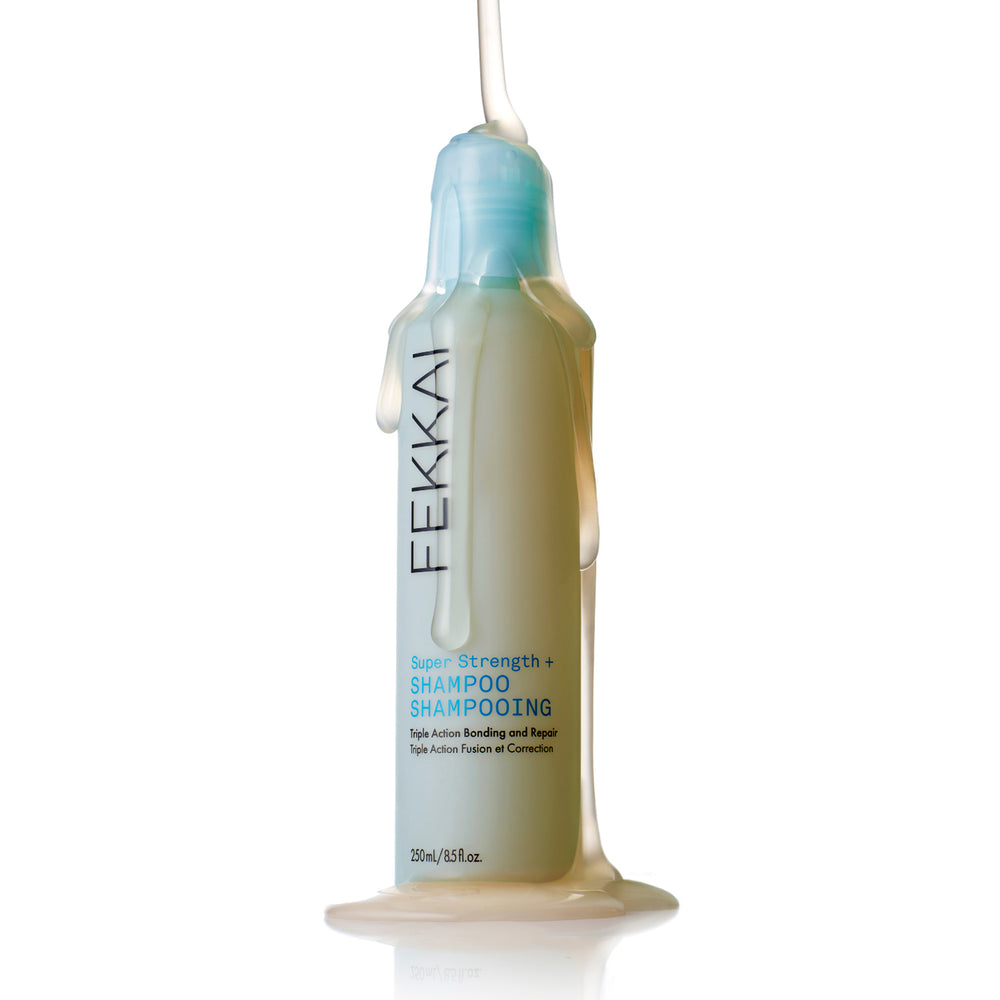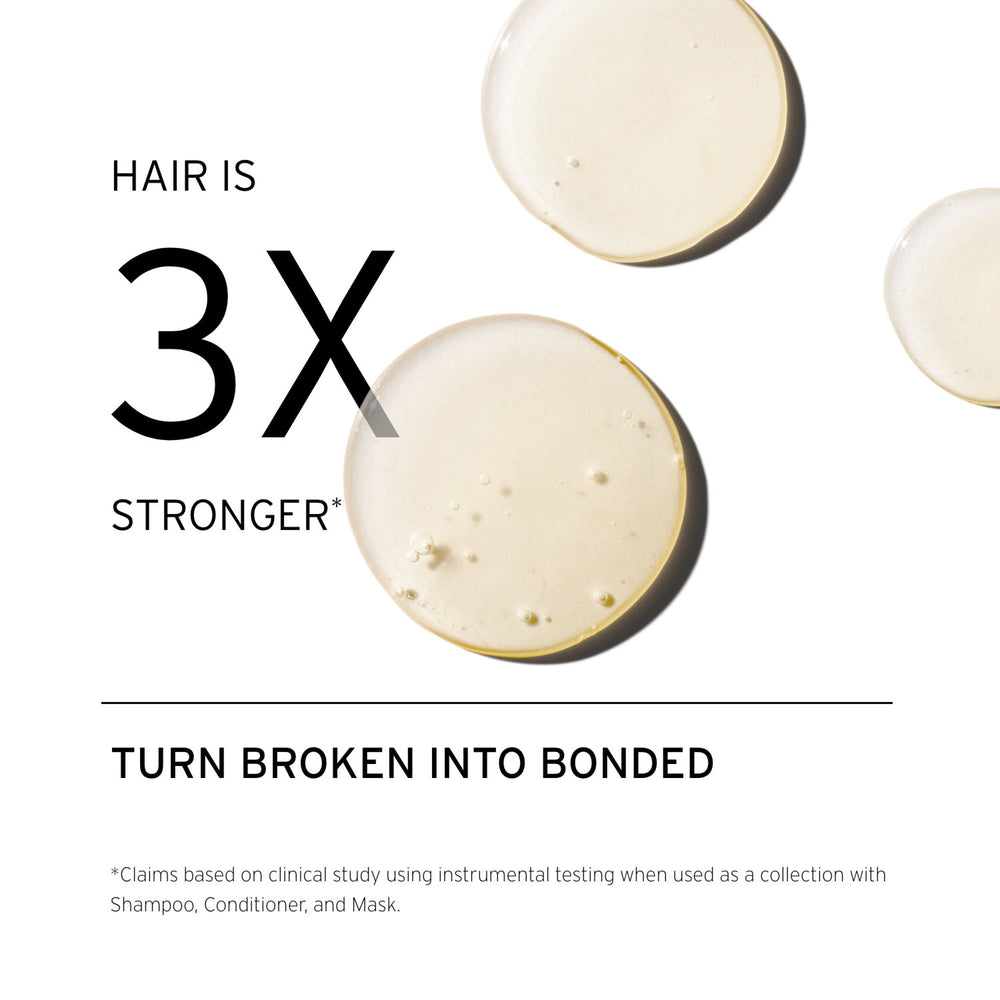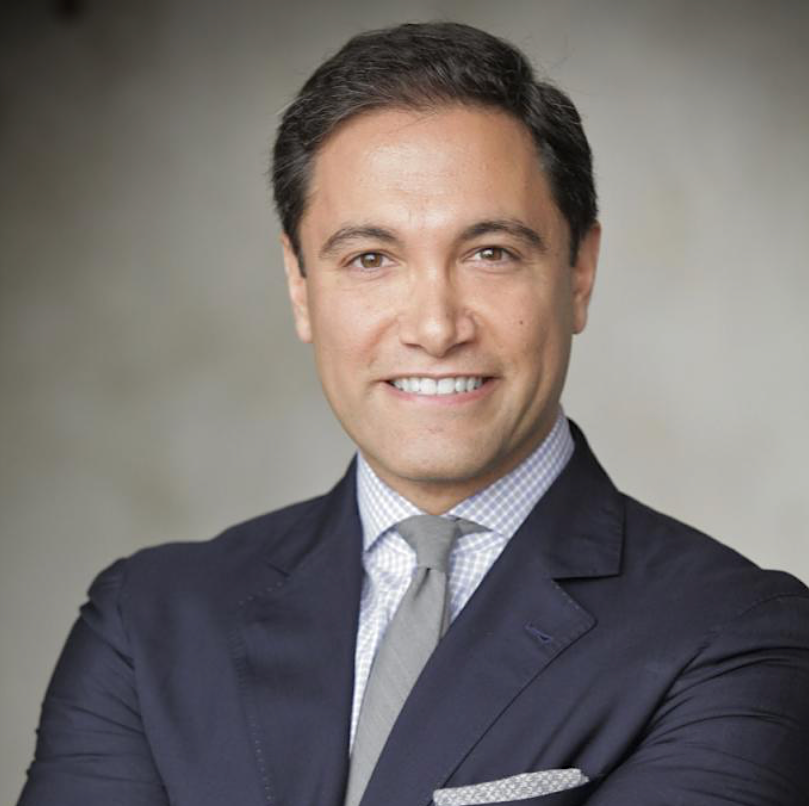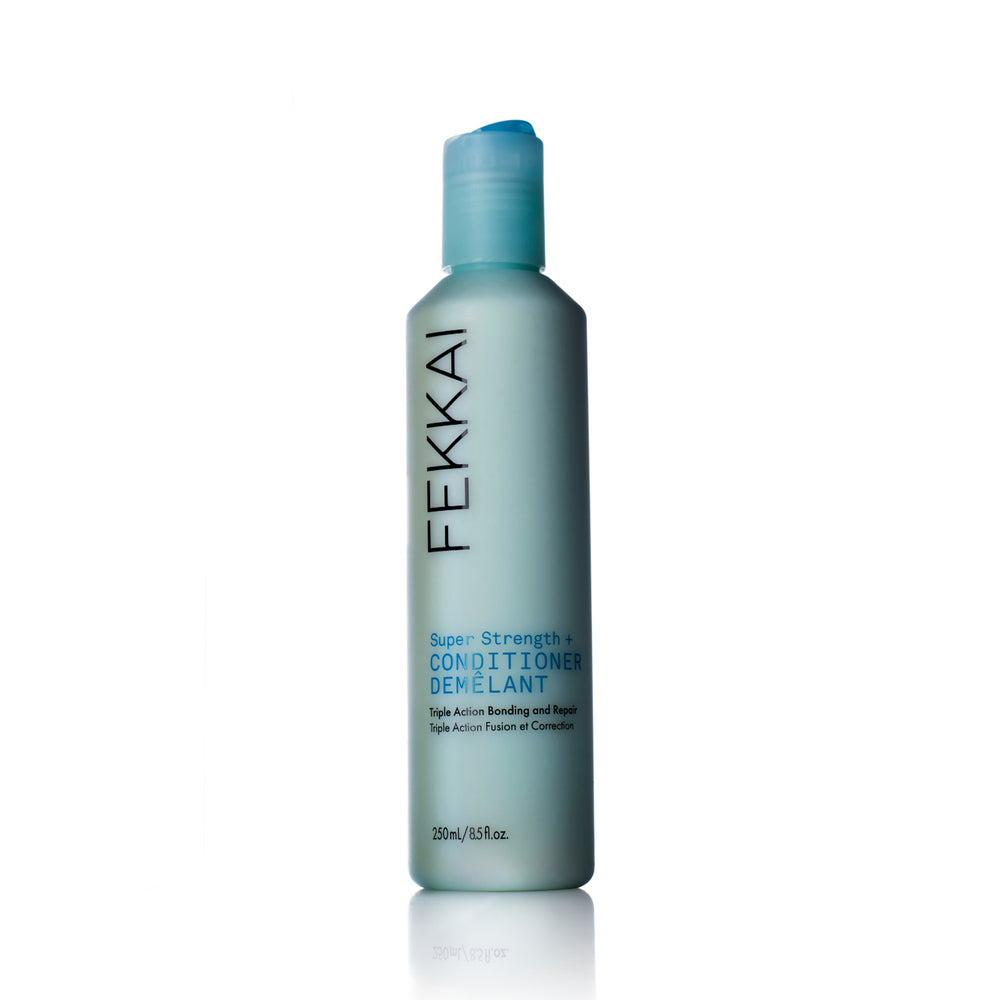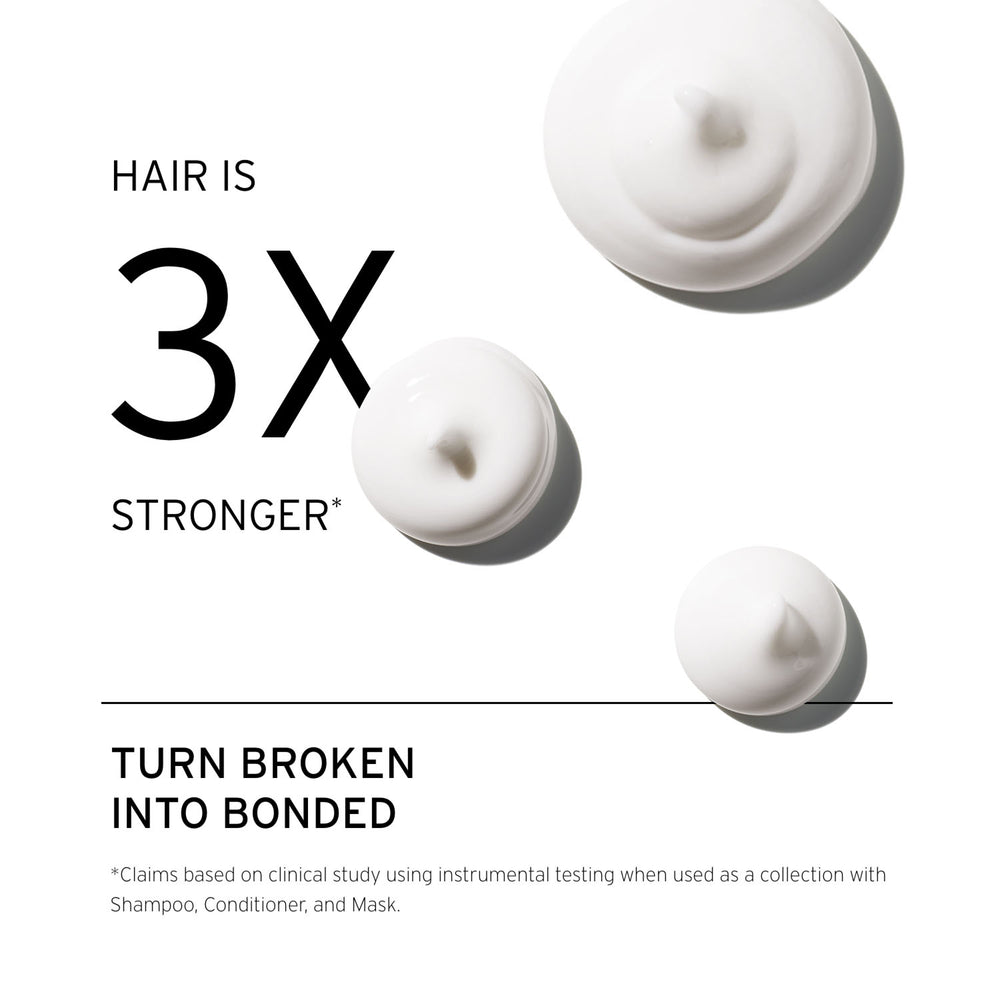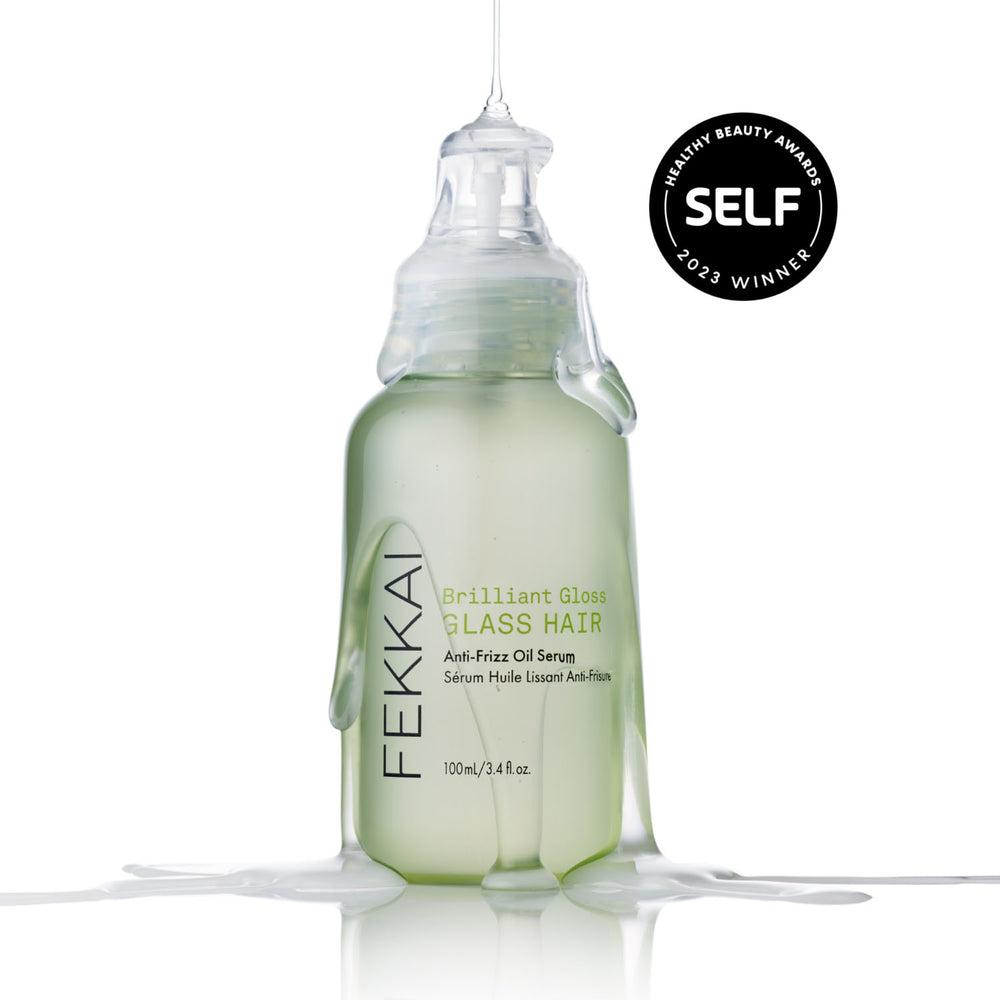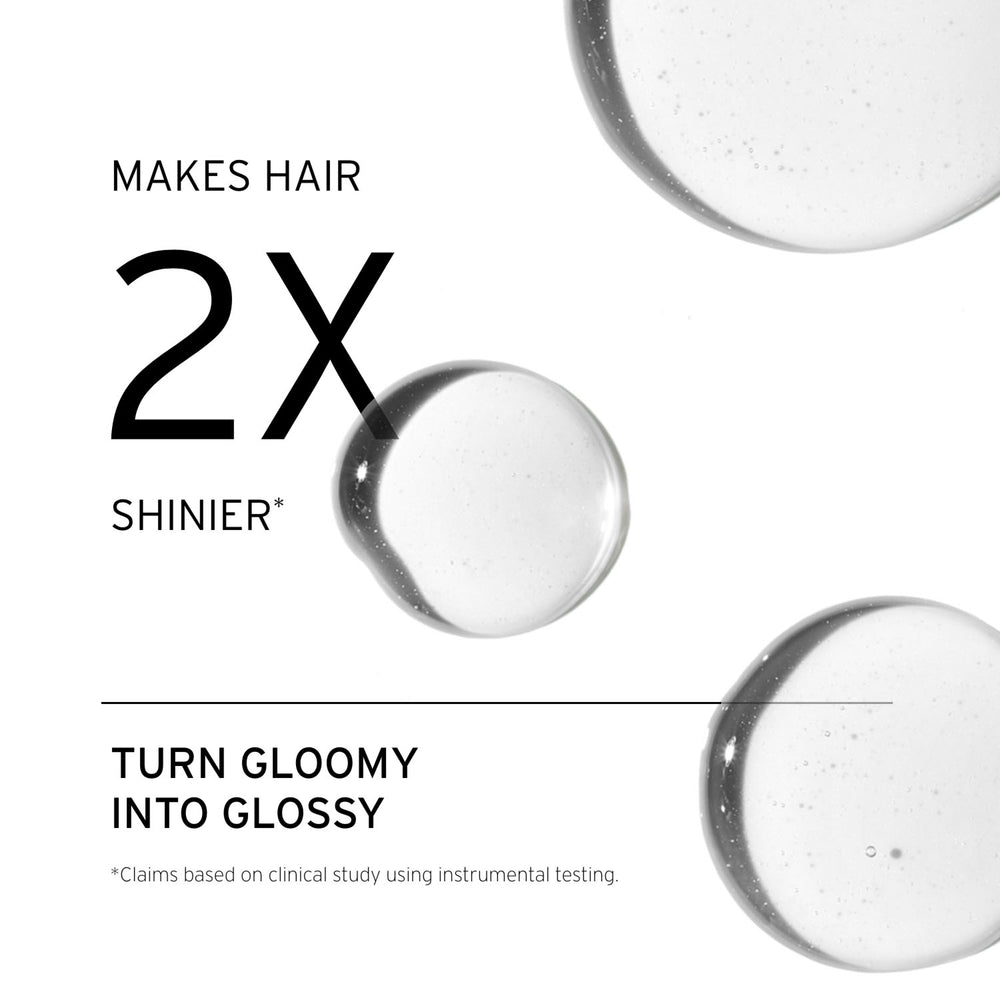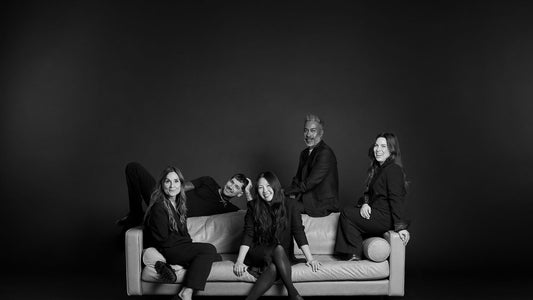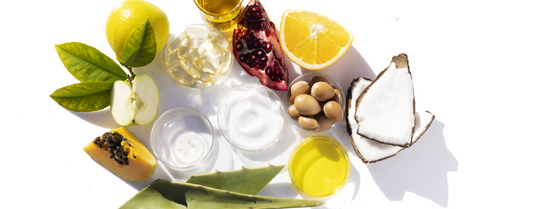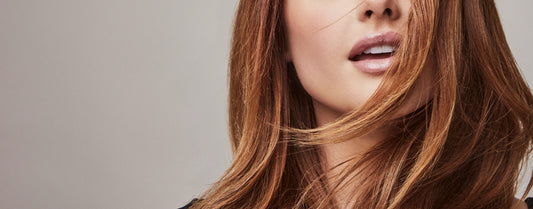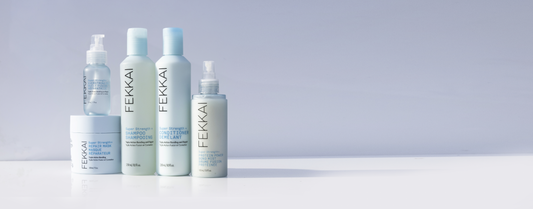I am a celebrity hairstylist, an entrepreneur, and a philanthropist who’s built my brand on taking care of others, body, hair, and soul. Join me weekly for The FEKKAI Life, a series of relaxed, intimate conversations with free thinkers, business leaders, and creatives who’ve used their passion to change the world for the better. Available wherever you find your podcasts.
FF: Hi, I'm Frédéric Fekkai and welcome to The FEKKAI Life, a podcast about some of the most impactful causes of our time and the creative minds that power them.
NNR: My name is Nader Naeymi-Rad. And to me, clean living means removing all toxic people out of your life. For me, clean living is more a state of mind. It's having a healthy mind, having a healthy attitude, a healthy perspective on life. And one of the important ways to achieve that is to remove people from your life who cause the opposite. They cloud your view. They sow doubts in your mind. They cause you to question who you are and your value. So to be successful and in my mind, have a clean living, you have to have the people in your life who will help you get there mentally.
FF: It takes a real leader to provide a platform for entrepreneurs everywhere. To better understand the driving force behind independent and digital first beauty brands today, we're chatting with my good friend Nader Naeymi-Rad, co-founder of Indie Beauty Media Group.
FF: Well, good morning, Nader. It's so good to have you. And I'm actually very impressed that I'm on the other side of the fence this time and interviewing you as supposed to what you've done already many times with me,. Nader, you and I know each other for quite some time now. And you know, I never actually asked you, what is your background? What did you do before you did your Indie Beauty Expo? And we'll talk about Beauty Independent after, but I want to hear a little bit more about your life, your history, where you come from and what made you, who you are.
NNR: You want the Nader story, right? Frédéric, as you may recall, I'm kind of an accidental beauty professional. And my background really was in a different industry. I, again, by accident, interestingly enough, I ended up in the life sciences industry, which is biopharmaceuticals. I got into that after university, when I moved to America, I met a gentleman there called John Campbell, who I worked for and he became my business partner. And we formed a company called Campbell Alliance, which over the years became one of the largest specialized management consultancies in life sciences. I was there for 15 years. We built the company from two people to over 400 with 14 offices around the world. And that was a hell of a journey for, and I was still young. I mean, when we built the company, I was mostly in my twenties and thirties. And I learned a lot building Campbell Alliance, both in terms of how to build a services organization and then being that we were a consulting firm, helping my clients build their companies, which at the time were a lot of young biotech companies. And in many ways, biotech companies are the indie companies of the pharmaceutical world. They're the disruptors, they're the challengers. And we were there while that was happening. Companies that back then were relatively small newcomers like Amgen, Genentech, Celgene are now among the top 10, 15 in the world in terms of revenue market cap. So seeing that revolution happen and being a part of it taught me a lot, building an organization from scratch taught me a lot. And in 2011 we sold and I left after a year, I stayed a CEO and I left and then I decided to do something completely different. I was kind of done with that life. As I said, I studied history and philosophy in college. I never really had a pension for science, but I enjoyed consulting. I was good at it. And the life science industry was fascinating, fast moving, you know, a lot of technology and changing people's lives. You know, if you look at cancer today, you know, it used to be a death sentence. Now it's increasingly being managed as a chronic disease. So it was very rewarding to be a part of that journey. But when I stopped working, I want to do something different and a good friend of mine, Jillian Wright, who had a very successful spa in New York, she was an aesthetician, she'd been doing that for almost 15 years, had an incredible client list. I was lucky enough to get a gift certificate from a colleague of mine to go see her. And we became very good friends. Every month I would, regardless of what was going on in my life, I would go in and see Julian. She was very good at her job. Then around 2014, she decided to launch her own skincare line. And she asked me for some advice and I gave her my thoughts, but I didn't know much about the beauty industry. So she took that and went along her way, launched her brand. And in late 2014, she approached me and said, you know, this is going well. But she's finding that the current ecosystem in the beauty industry is not really suited for small brands. And she was having a hard time getting her product to the next level. And one of the areas she was thinking about was an expo for other brands of her kind. And in March of 2015, she asked me if I would help her with that. And I was just really, as a friend, I said, sure, I, I believed in Jillian, she's an incredible woman. And I really knew whatever she did, she would eventually make it work. And to me, it was interesting. It was something very different. And it was in New York, which is where I was based at the time. So we started that journey in March of 2015. But to kind of go back to your original question, I did not come from the beauty industry. This was very much an accidental. It was by chance that through Jillian, I became introduced to it. And then once we did the first expo, then, you know, everything changed. Then I became much more thoughtful about the industry and what I do.
FF: Yeah. We love accidents. So in the past few years, there's a whole new language when it comes to beauty. We talk about clean. We talk about natural. We talk about no nasties and so on. And indie. You have so much to do the perception of the word indie in the industry. So tell me, what does indie beauty mean to you, but also mean to everyone else?
NNR: I mean, your point is exactly right. That was my first question. When I was talking to Jillian which was, what, what does this mean? You know, we've heard of indie music back in the nineties, it was kind of a trend and other terms of indie, but I didn't really know what it meant in beauty. And as I spoke more to her, I came to realize that the general consensus was indie meant a small startup challenger brand. So it really reflected a stage in the life cycle, meaning you're early in the life cycle of the brand and you're on the smaller side. And as we started our journey together, I never forget Jill and I were sitting in the offices of our PR firm. One of the smartest things we did was to actually hire a PR agency, Blue Sky PR agency. I don't never forget them. And they told us, listen, you guys need to put a stake in the ground and define this because a lot of people are asking what is indie? And so we said, that's a fair point. If we're going to serve indie brands, we have to have a good idea of what that means. And so the definition we ended up going was to really not so much focus on the stage of life cycle or size, even though those are typical traits associated within any brand, we already went with the word independent. We said, what's the technical definition or a proxy for independence. And the way we defined it was the company is 50% or more owned by those who are directly operating the brand. In other words, the people working in the brand have the power, the discretion to do what they feel is necessary and are thus independent. Whereas if you're a portfolio brand part of a larger conglomerate, you don't really have that independence. You know, the person running, I don't know, L'Oréal Paris, you can't go tomorrow and say, you know what, I'm just going to totally change the packaging, or we're going to stop putting this ingredient. And I mean, there's a whole process they have to go through. There's a board of directors, you know, it's very different. So independent is what we really focused on. And when you look at independent brands, you see that they are disproportionately younger and they're disproportionately smaller than other brands, but there are many independent brands out there who are larger mid-sized and been around for a while. Europe in particular, there are a lot of family owned, independent brands that we don't know in the U S but they are like in fashion, you see them too.
NNR: So that's been our definition and what is always attracted us about independent brands is the innovation they bring to the table, it's the freshness, the different perspective, the mission driven aspect of what they do. And so that has also become part of the indie lore is brands that are groundbreaking, that are disruptors, that are challenging the status quo. But for us, again, to answer your question, we went with the kind of, you know, are they technically in a position to be independent and even the other 50% could be owned by VCs or family, or maybe other companies, but at least the people directly running the brand controlled the decision-making,
FF: You know, I love when you say that, but it's true that also indie is to me, a synonym to disruptive, you know, to be thinking out of the box and to be you know obviously not following the guideline of the big brands. So you obviously know and work with so many beauty founders, what was the first founder-led brand that really knocked your socks off, inspired you?
NNR: There are so many, it's like, you know, it's like me asking you, what was the one client that really changed your view of how to be you know work on people's hair. But I will tell you there's one brand that I always remember, and not always for good things. And you'll see in a moment why, but it's Innersense, and it's actually a haircare brand. Interestingly enough Greg Starkman and his wife were one of our first exhibitors at the Indie Beauty Expo. And I never forget Greg, because I had to spend quite a bit of time on the phone with him before our first show answering what seemed to be a endless number of questions. And he was a classic cynical buyer. I mean, he wanted to do the show, but he almost had to put me through my paces. And so when we did the first expo and he showed up I was expecting a demon. I was expecting this guy to be a real pill, just, oh, he turned out to be one of the nicest people I've ever met. He's also very, very charming. He's genuine. He just one of the nicest people and his product is something that back in 2015, when we had our first expo you know, my view of haircare products, similar to what you said when you were looking at your brand was, you know, they're good. They're okay. But his product really captured the essence of who he is and the journey that they have to go through and starting their family. And so it was one of the very first instances where I developed an emotional relationship with the beauty products in a category that I felt was completely a commodity category. And so he was one of those first brands and he's been a repeat exhibitor with us, and we've always kept in touch. He's also been on my show. And the other brand that I want to mention is in a very different category and it's Au Naturale. Ashley Prange is the founder of that brand. She is a scientist by training. I believe she'd worked for the the Nuclear Commission, the US Nuclear Commission, but she just went in a completely different direction and started this cosmetic color cosmetic brand called Au Naturale. She was also one of our first exhibitors. And one thing about her that really stood out to me was the uncompromising view she had of ingredients and the complete can-do attitude. And this was the first time I met someone who just would not allow anything to stand in her way. She was this force of nature that was going to make a difference in the world, whether we were there or not, that people agreed with her and her brand is still around today and growing. And that was the first instance where I met what I call a TOBI, today's beauty innovator, a relatively young well-educated professional who's not an expert in beauty, who's not an ex-beauty executive, but is a very independent-minded driven individual who will accomplish their mission innovate in whichever way they need to, to get the job done.
FF: You co-founded Indie Beauty Media Group, which produce events like the Indie Beauty Expo and really fights to get smaller brands great visibility. Was there a light bulb moment for you where you realized beauty entrepreneurs needed a leg up to get attention and a support system for that?
NNR: Absolutely. When we launched Indie Beauty Expo, formally announced that it was going to be available, it was towards the end of March 2015, and we had rented a small space in New York for August, which in case you don't know is the cheapest time to do a show in New York because nobody wants space in August. I mean, look, we didn't know what we're doing. We're not expo professionals. We didn't tell our high school guidance counselor, we wanted to be in the expo business. For Jillian, it was a necessity, for me, it was a way to help my friend. And so, you know, we wanted to not take a lot of financial risk. And so we went with August, we found a space that could hold up to about 40 exhibition spaces. And so we started the company and announced the launch in March. And by June, we took the rest of the space that was available at that building. And even by early July, all 80 had gone. And that's when I started to say, well, what's really going on here? The beauty industry is going through a perfect storm. Almost every foundation of the old industry is I don't want to use the word crumbling, but is metamorphosing. So, you know, innovations in manufacturing are allowing small brands to access manufacturers and technologies that were previously completely only available to large companies. And then the rise of beauty retailers, Ulta, Sephora, even now, Amazon, Dermstore, smaller players like Detox Market or Credo have created a demand for additional brands, especially those that meet certain criteria or are new and different. And so the old drug store, department store duopoly, the old you got to advertise with Hearst or Condé, the old you got to buy your product from one of the big beauty companies, all of that's gone. And so entering this vacuum, our TOBIs, today's beauty innovators who are building the next generation of beauty brands. And yet the entire industry is geared towards supporting the old industry. So for example if you want to showcase your product to a beauty buyer, you have to do a very large trade show in Bologna, good luck finding a hotel room in Bologna, let alone getting to Bologna. And then you were in a room with thousands of brands, some of which are hundreds of times larger than you. And you hope to get found over the course of the four days you were there. Similarly, if you want to source a manufacturer or a packaging company, you have to go through Google because you don't have a procurement department that just does that for you. I began to talk to a lot of beauty innovators, a lot of TOBIs and I learned that really, they had nothing. There was nothing there to support them. They had nowhere to go to show their brands. They had nowhere to be discovered by pressing investors. They had no news and information available to them because nobody was covering the field. And so that's when I realized these are the brands of tomorrow, they've already gone from 2% of the market to 10%, the best estimates available at the time, and by now probably up to 15%, they need help. And when you meet TOBIs a lot, Ashley or Greg, you begin to see firsthand the challenge they face and how the deck is stacked against them. And that they are very willing to try new services and to partner with a company that developed something that's specific to their needs.
FF: So you are also the publisher of Beauty Independent, a digital first platform reporting on beauty entrepreneurship, and when COVID hit and a lot of brands were unsure how to reach their audiences. And I love that you guys, Beauty Independent, took the leadership position on digital first programming. So how do you think the current pandemic is affecting indie brands and how are you working to support them further?
NNR: In a way, what resulted in Beauty Independent hasn't changed. It's kind of accelerated what we were hoping to do in that back in 2015, and I had to learn a lot, and so I would subscribe to anything I can get my hands on my research and try and understand what's going on. And Frédéric, I was so frustrated. It was like water, water, everywhere, not a drop to drink. I would subscribe to all the trade magazines. Some of them, the well-known ones are very well-written, but they are 70% fashion. I couldn't care less. And then the 30%, they cover beauty, again, very good quality journalism, but they have to cover the big brands. So if they don't report on the new executive shakeout at L'Oréal, their audience will be upset, which means if they don't cover indie funding or getting into a retail or launching, nobody would really care. The editor wouldn't be at risk of losing their job. From my own experience, there was so much happening in the indie space that just wasn't getting reported. And so in 2015, out of sheer frustration of not having anything to read, I decided that we're going to tell those stories. And I called what was then previously the West Coast editor of Women's Wear Daily, Rachel Brown, who I knew shared our passion in this area. And within five minutes, she agreed that, yeah, we're going to do this. And we launched Beauty independent in August of 2017. And when we launched it Frédéric, we decided from the very beginning that it was going to be digital. Hearst, Conde Nast, all of them were just losing revenue because all the money was going to Facebook and Google. And so by being digital, we also made it easier for our audience to access and consume the content. Because beauty entrepreneurs, aren't sitting around reading their magazine at their desk while their assistant takes their calls. They're sitting in their garage with their mobile phone packing boxes and, you know, reading whatever's going on. So with Beauty Independent, we decided to tell the story of beauty entrepreneurs and cover the topics that they cared about. Now, when COVID hit, what happened was that the Beauty Independent community suddenly needed more support. And the value of our content became more apparent to many people who previously may not have had the time to really look at it. But then what also happened, and again, this is by luck is we started a webinar because people were lonely. People were saying, look, we're stuck at home. We're disconnected from our network. We don't know what the hell is happening there. And so we started our In Conversation webinar series, and we thought, we'd do a couple and it'll be done. Now we're on episode 29. We have programming booked until the early next year. And I'm as shocked as anyone that it has been so successful. It's just, it's worked, I think the format, et cetera. And one of the reasons it has been so successful is the people like yourself, who come on the show and very candidly and freely talk about their experience, their knowledge, their insights, and their advice, the next generation of beauty entrepreneurs. And I think authenticity is what really draws people in is that we're not suddenly going out there doing this because we're interested in indie brands because they're hot. We've always had this as a core part of our mission. And this is just another way to get the job done.
FF: Yeah. And I applaud you because obviously I was on the front row seeing the development of Beauty Independent. And I have to say you're right. The genuine, the authenticity, the credibility, the relaxed atmosphere about it makes it so pleasant and so real, so modern and relevant today so I applaud you for that, this is great. Listen, I was recently lucky enough to be nominated for the Beacon Award from Beauty Independent and attended the digital award show, which you hosted. It was remarkable to me how natural you are connecting to this group of people that are all over the world. How do you think all this digital first communication has changed our relationships and how will it continue to shape the way brands communicate today with our customers?
NNR: Yeah, I think it's a multi-layered answer that I have to give you. I think, specific to the Beacon Awards, when we set out to map out the award ceremony, and the same thing with our In Conversation webinar series, I was very adamant that I didn't want it to be like every other webinar. Honestly, I despise webinars. I find that dull annoying inconvenience and not in the least entertaining. I mean, the truth of the matter is people want to be entertained. That's that's what motivates us. Even if you think about how people consume news nowadays, I don't watch CNN. I watch Stephen Colbert or The Daily Show because people don't take themselves as seriously anymore. People realize there's a lot of marketing hot air, and you need to be able to cut through that and be authentic. And I feel if I had to give you one word, answer to the question is authenticity. So with our webinar and the Beacon Awards, we want it to be absolutely authentic. And part of that authenticity comes from having a team, a staff, and a host that genuinely is interested in the entrepreneur's journey. There are a lot of people who, as an entrepreneur, I'm an entrepreneur, it's a horrible, terrible life, by the way, for all you listeners out there thinking of becoming an entrepreneur seriously, there's a lot of other better jobs out there. Insurance sales for one is very, very safe job. Okay. Anyway, back to track you have to be able to connect with entrepreneurs and, you know, people put entrepreneurs on a pedestal, which I think is wrong. And at the same time I just looked down at entrepreneurs as these nut jobs. Truth of the matter is both are a little true, entrepreneurs are often the crazy ones. They're the ones that won't take no for an answer. They have imagination that is often, far further ahead of their ability to execute or to raise capital. They can be very quirky personalities but you need to love them for all of that. And, and I think from us, Jillian, who's my business partner, and she is definition of a beauty entrepreneur. You know, I love Jillian and all the founders that I've met, even the ones who, you know, gave me a real hard time, for whatever reason, you have to love them at certain level. And people who interact with us know that that is how we feel about them. We're part of their tribe. They're part of our tribe. We care about them as people, as professionals and we're here to really help them. And I think that's the common culture. You know, I'm not trying to be any better than myself and I don't put you or Marcia Kilgore or Kate Somerville on a pedestal. So I know pretty much, you've told me what you had to get through to where you are today. And it's not always very glamorous. And it's in part your humility that allows you to deal with this and not get depressed every time something doesn't go wrong. And in your case, I'm going to say this, you can edit if you want later, what is very special about you Frédéric, beause I see other entrepreneurs out there, when you talk about authenticity, the energy you have dedicated to helping others with thought leadership, community outreach, just being available and going out there and talking is what makes you very special in my mind. And it's consistent and it's genuine. And you've been doing that for several years now and it really has made a difference, has made a difference for our business. I'm sure it's made a difference for other beauty entrepreneurs. And those are the kinds of people that we want in our ecosystem. Those kinds of authentic entrepreneurs who are in it because they have a vision and they want to execute it versus people who see it as the new hip thing. And they're trying to leverage it to their own advantage.
FF: Thank you. So on that note, where can our audience engage with Indie Beauty and Beauty Independent and you online?
NNR: Nowadays through social media, either LinkedIn. Personally, the best way to reach me is through LinkedIn. I am the only Nader Naeymi-Rad as far as I know on this planet. So just put my name into the search bar and it'll come right up. And with our company either through LinkedIn or through Instagram we have all of our properties, Indie Beauty Expo, Beauty Independent, Uplink, they all have Instagram accounts and you can reach us through those.
FF: What's next for Indie Beauty and for you?
NNR: You know, we were at a very interesting spot earlier this year, we were doing our Series A fundraising. We'd kind of reached that point where it was the right time to bring in some capital into the company, we'd been self-funded and bootstrapped the whole time. And that is another reason we understood beauty entrepreneurs and how to work with them is we lived that reality. And as we were doing that process, we rapidly found out that, you know, we built an ecosystem for indie brands with our trade show, our leadership and networking events, Uplink to find vendors, Beauty Independent for news and insights. And what we discovered is that investors fell into two categories. There were those who really got the events side or those who really got the digital side, but nobody really could put the two together in their heads. And it's just the way investors are. They often have a myopic view of the world, but we had found several people who were interested in our expo properties. And we were very far along in, you know, securing funding and like a poorly scripted made-for-TV movie COVID happened. And, you know, everything just went up, like vaporized. And so we had to really look at our business and re-imagined how we serve our clients because what's interesting, and I just remembered, I didn't answer your earlier question. COVID has been kinder to indie brands than it has two big brands. If you look at Revlon and Coty, they're in a complete free fall, their stock prices are at, you know, historic lows, their debt burdens are crushing them. They're really desperate to get themselves back in the good side, whereas indie brands, because they're small, when you don't have much, you also don't have much to lose. Plus the closure of a lot of brick and mortar has made a lot of their sales move to their own online DTC site, where they have far better margins than they would through their retail partners. And so a surprising number of indie brands have done better as a result of COVID than they would have had COVID not happened. And the others have just, they're in hibernation. You know, they don't have a huge staff. They don't have a lot of office space and retail associates to support. So they just, you know, hunker down. As a result, we realized that most of our customer base is still intact and they have all the needs they did before. Maybe the way it's delivered has to change. And so saying it here first, we will be launching some new services later this month and until throughout the rest of this year and early next year, three new services that will be coming to the market to really, I don't want to use the word replace, but to supplement what we were doing before in a different way, because in a year, maybe even sooner events will happen again. The underlying need to meet people, touch product, interact with founders isn't going away, it's just increasingly people are going to realize that doing it remotely, in addition to doing it in person, has value. And so we're building out that part of our business and specific to Beauty Independent, we're going to be releasing new types of information and data services that we previously didn't have in addition to our video and and multimedia series that we've done with In Conversation series.
FF: I'm so impressed by Nader's vision for a highly connected feature for independent beauty. As an entrepreneur and a founder myself. I'm certain that the best way through these challenging times is joining hands as an industry to move forward. I'm Frédéric Fekkai, and this is The FEKKAI Life. We'll see you next season for even more exciting conversations with the most impactful leaders and thinkers.
Follow Frédéric Fekkai on Instagram and LinkedIn.
Follow FEKKAI on Instagram, YouTube, TikTok, and Facebook.
Subscribe to The FEKKAI Life podcast on Apple Podcasts and Spotify.
